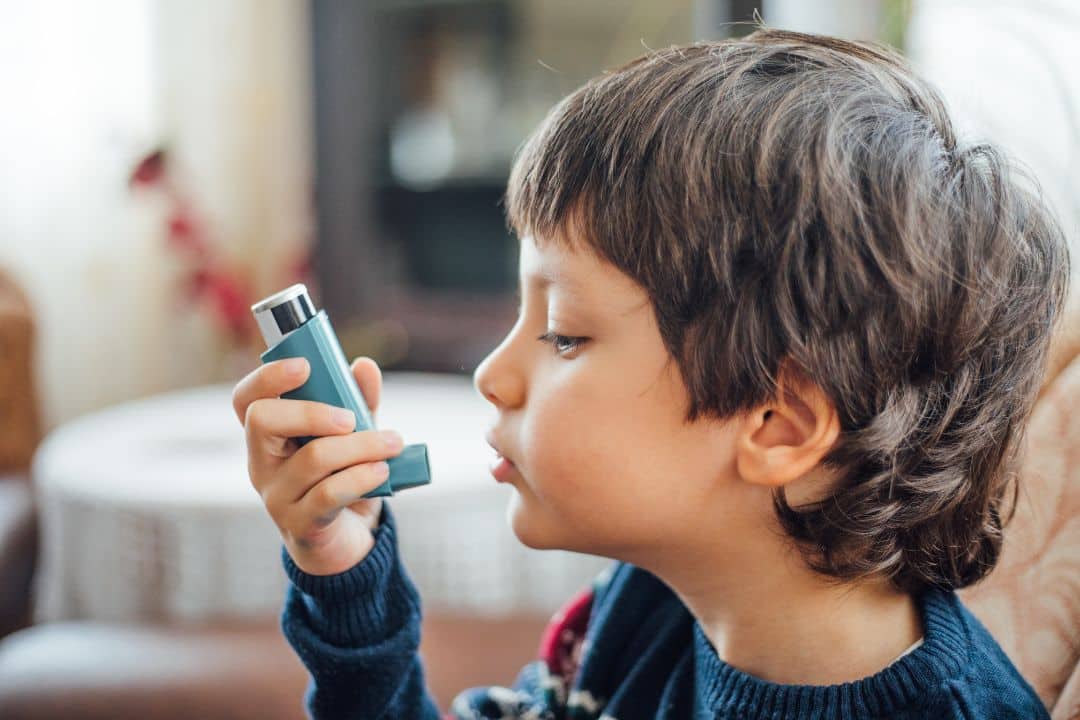Why Using an Inhaler Does Not Indicate Asthma
Catagory: General Pediatrics Author: Dr Vamsi Krishna

If you’ve ever visited a hospital or doctor’s office and been given an inhaler prescription, you may be left questioning whether or not you really have asthma.
The use of inhalers does not indicate asthma. In reality, depending on the symptoms being experienced, there are a variety of reasons why inhalers are utilised to treat various medical conditions.
Here are some of the most popular justifications for using inhalers and how they assist in reducing various signs and symptoms of various medical diseases.
Knowing About Allergies
Your body may produce immunoglobulin E (IgE) antibodies if you have allergies in reaction to allergens.
Food, dust mites, pet dander, pollen, mold spores, insect bites/stings, and latex are just a few of the numerous things that cause allergies.
When these elements interact with your immune system, allergies result from an allergic response.
Allergy symptoms include sneezing, coughing, itchy eyes, runny nose, wheezing, and hives.
The medications suggested for allergy relief come in a variety of forms, such as inhalers, which lower airway inflammation by widening the bronchial passages in the lungs. Additionally, inhaled drugs make use of the body’s innate capacity for self-healing.
The drug enters the lungs via the mouth and travels right to the airways, where it is absorbed into the lung tissue and becomes active. With inhalers, you can more precisely regulate how much medication enters your respiratory system.
Knowing About Asthma
Wheezing, tightness in the chest, shortness of breath, and coughing are some of the varied and recurrent symptoms of asthma, a chronic inflammatory disease of the airways.
Exposure to an allergen or other stimuli often causes the symptoms. When you take a bronchodilator—an asthma medication—during an attack, your asthma may react in one of three ways: fast-acting (relief within five minutes), slow-acting (relief within 20 minutes), or with no relief at all.
A bronchodilator inhaler is really used by many asthmatics. To make breathing easier, it relaxes the muscles in your airways.
You may utilise a variety of drugs, such as short-acting, long-acting, or combination treatments. Metered dosage inhalers (MDIs) for inhalation usage and pills and capsules for oral use are the two formats in which short- and long-acting drugs are available. They function by enabling more air to travel through the small openings in your lungs.
In order to determine if you have asthma, doctors will perform a number of respiratory and lung tests. To check whether allergies might help explain any of your symptoms, they will also test you for them. The doctor will be able to establish from these outcomes if you have asthma, what therapy is required, and how the diagnosis was reached.
Recognizing COPD (Chronic Obstructive Pulmonary Disease)
COPD is a chronic lung condition that makes breathing difficult. Because COPD is brought on by prolonged (chronic) exposure to items like dust, cigarette smoke, and air pollution, it differs from asthma.
Over time, these issues harm the lungs and inflame the bronchi, leaving them more vulnerable to triggers like cigarette smoke.
COPD symptoms include breathing difficulties during activity or sleep, a cough that produces phlegm, tightness in the chest, and wheezing or whistling noises while taking deep breaths. Instead of an inhaler for asthma, a COPD inhaler may be supplied to you.
Recognizing Additional Conditions That Call For An Inhaler
Some of the ailments that may need the usage of an inhaler to include the following:
- Chest pain
- Emphysema
- Cystic fibrosis
- Additional respiratory conditions
- Congestive heart failure
- Pneumonia
- Shortness of breath after exercising
Inhalers are helpful for many other conditions than asthma, and they are not always connected to the condition. If you are exhibiting signs like wheezing, a tight chest, etc., you should not automatically assume that you are having an asthma attack. Speak with your doctor, who will prescribe the proper kind of inhalers if you have a medical condition that calls for them.
If your kid has breathing problems or regularly becomes short of breath, you should get him or her assessed to avoid more problems or potentially dangerous circumstances. Make an appointment with us if the health problem your kid is now experiencing calls for a diagnosis.
Recent Posts
-
empty
-
Emotional and Psychological Support for Families in the Pediatric ICU in Tirupati
-
10 Some Healthy Eating Habits for Kids
-
Understanding Childhood Vaccinations: Comprehensive Guide for Parents
-
Top Tips for Keeping Your Child Healthy During Monsoon Season in Tirupati
-
Decoding Pediatric Care: When to Choose a Pediatrician vs. a Pediatric Intensivist
-
Understanding the Vital Roles of Pediatricians and Pediatric Intensivists
-
Nurturing Mental Health in Children: Insights and Strategies
-
Navigating Parenting Challenges: Insights from the Best Child Specialist in Tirupati and the Premier Pediatric Hospital
-
Tips for Safe and Comfortable Pregnancy Travel
